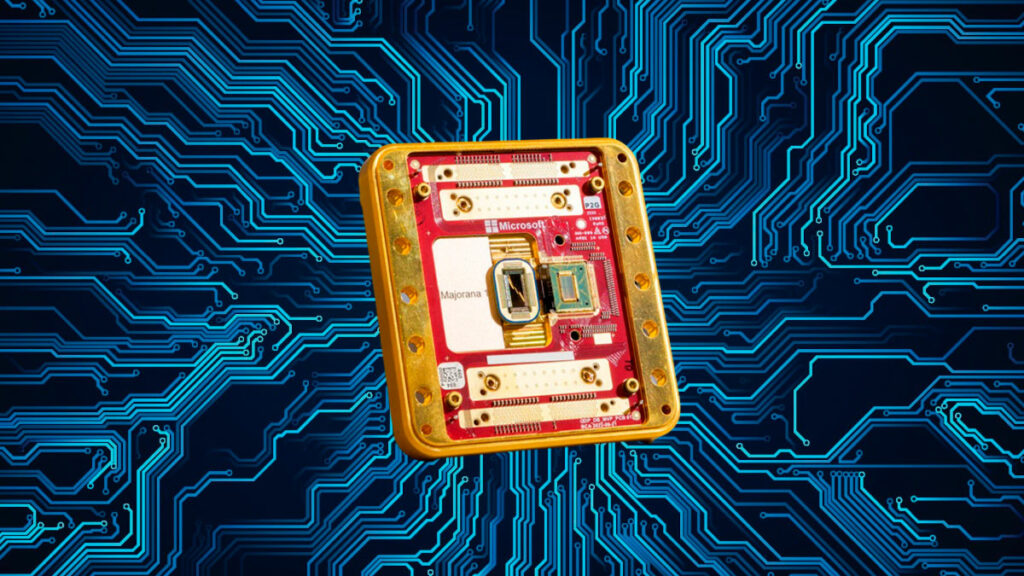TL;DR
- Microsoft’s Majorana 1 chip, a quantum computing innovation, could accelerate the timeline for Bitcoin’s quantum resistance due to its advanced processing capabilities.
- The chip’s Topological Core architecture enables the creation of stable and scalable qubits, raising concerns about Bitcoin and other cryptocurrencies’ vulnerability to quantum computing attacks.
- The cryptocurrency community must develop new cryptographic algorithms and quantum-resistant solutions to address emerging threats posed by advances in quantum technology.
Microsoft has unveiled its groundbreaking Majorana 1 chip, a quantum computing marvel that promises to revolutionize the future of computing and artificial intelligence. This development has significant implications for the cryptocurrency world, particularly concerning Bitcoin‘s quantum resistance timeline.
In a post on X dated February 20, River mentioned that although a quantum computing breakthrough threatening cryptocurrencies is still many years in the future, the new chip might have accelerated that timeline.
1 million qubits can potentially crack a Bitcoin address.
Microsoft says its new chip creates a path to get there.
How long does Bitcoin have to become quantum-resistant? And what’s actually at risk?
We break it down in this 🧵 pic.twitter.com/gY2hRJILMu
— River (@River) February 20, 2025
Details of the Majorana 1 Chip
The Majorana 1 chip is the world’s first quantum processor built on a Topological Core architecture. This innovative design leverages a new material known as a topoconductor, which enables the creation of stable and scalable qubits. These qubits are essential for quantum computing, as they allow for faster and more reliable processing of complex calculations.
Impact on Bitcoin’s Quantum Resistance

The introduction of the Majorana 1 chip has sparked discussions about the potential vulnerability of Bitcoin and other cryptocurrencies to quantum computing attacks. Quantum computers, with their immense processing power, could theoretically break the cryptographic algorithms that secure Bitcoin transactions.
This has led to concerns about the timeline for Bitcoin to become quantum-resistant. Quantum chips offer significant advantages to the artificial intelligence sector, revolutionizing the way models are trained and utilized.
Currently, AI primarily depends on GPUs and TPUs to process large volumes of data; however, quantum computers could surpass these traditional technologies, enabling exponentially faster processing speeds.
Future Implications
Microsoft’s Majorana 1 chip represents a significant step forward in the development of quantum computing. As the technology continues to advance, the cryptocurrency community must stay ahead of potential threats.
This may involve developing new cryptographic algorithms that can withstand quantum attacks or implementing quantum-resistant solutions within existing blockchain networks.
The launch of Microsoft’s Majorana 1 chip marks a pivotal moment in the evolution of quantum computing. Its potential impact on Bitcoin’s quantum resistance timeline highlights the need for ongoing innovation and adaptation within the cryptocurrency space.
As quantum technology progresses, the crypto community must remain vigilant and proactive in addressing emerging challenges to ensure the continued security and resilience of digital assets.










